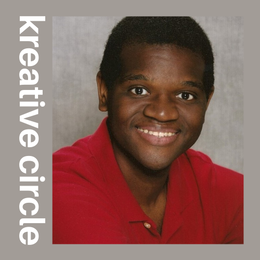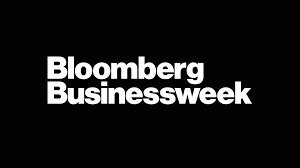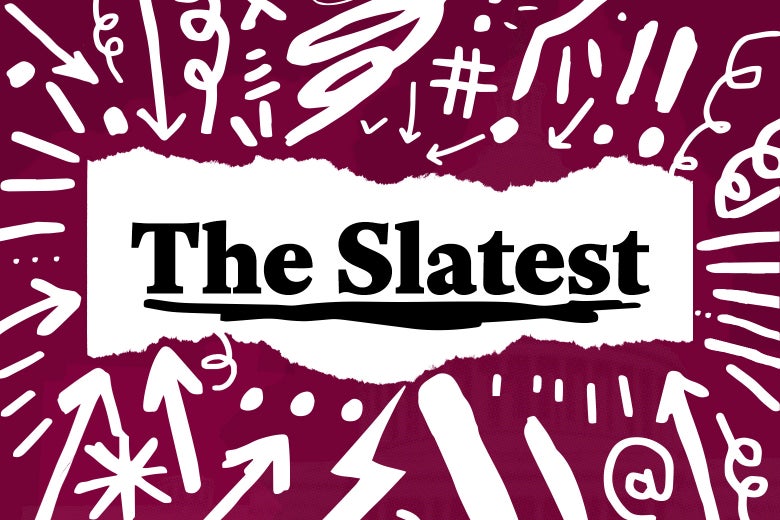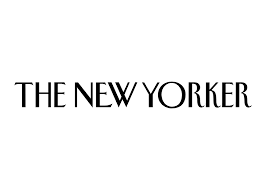Hi Casey! Nice to meet you. Please introduce yourself and share with the audiences how you evolved into becoming a well respected author. Did you know writing was your gift since childhood?
Thank you. I am a writer of books, plays, films, poems and songs. I have been writing since the age of six and never stopped writing. I always wrote for the fun of it and to share insight, stories, and ideas. I did not realize until after college that I was a “writer.” Definitely after doing a play reading of a play I wrote in 2008, after the reaction of the audience, and positive feedback, I knew then I was a “writer.”
You've authored at least 32 pieces of work from children's books to plays. Does life imitate art, or does art imitate life in your professional endeavors?
Every piece of work has its own story. Most of my books, plays have a piece of me or someone I know. None of my writings are completely based on my life (except my memoir), but there is always some truth to everything I write. I would say that most of everything I write is 20% non-fiction, 30% exaggerated non-fiction, and 50% fiction.
In your book "Cry", you're able to infuse comedy into drama. As an author, how are you able to sensibly strike a balance with integrating comedy in such works without compromising the integrity of the story remaining drama? What advice do you have for new authors trying to merge such two genres into a respectable piece of work like "Cry"?
As weird as it sounds all of my drama pieces start out as comedy. As much as I enjoy silly comedy, I realize in this world the way it is, we need more meaningful entertainment with a lasting message that will cause change. So, once I start a comedy piece, I always ask myself what is the purpose or message of this work. Once I do that the drama just writes itself. I can’t say I have any advice for authors. I believe either you have that gift to do both or you don’t. And if you don’t then stick with your unique gift.
What were the critical lessons you learned as an author following the release of your first book? In hindsight, how have you grown as a person given you've penned multiple genres of work over the past fifteen years?
The first lesson I learned was invest money on an editor. No matter how many times you edit your own work, there will always be something you miss. Also, I learned to educate myself on marketing and advertising. As much as you think everyone you know is going to support you, at the end of the day, if you are selling what they don’t want, it doesn’t matter how much they love you, they will not support. I had to find my audience, my customers, the readers, and market it to them. I also learned it takes bravery to be unique. Every professional wants you to be a carbon copy and wants you to fit in a template, but you have to learn to say true to your fingerprints. I’ve learned to be as unique as my fingerprints. I have grown in a sense that I am now proactive in getting my messages out there as opposed in the beginning waiting for someone to find me.
What was the best piece of writing guidance you received when embarking upon your career?
Is the latter advice still relevant today?
Get an editor. Yes, it still is.
Which genres of writing do you find to be more challenging? Why so? Is there a particular piece of your writings that you hold dear because it demanded you to grow in the process of writing?
Children’s books are always challenging for me because I have to find ways to write simply so it can be understood, which is not always easy when you are used to writing for adults. It is also challenging because I illustrate my own books, which is not always fun. The piece I hold dear is “Essays From Dysfunctional Families: Literary Betrayal,” because it is a unique book and the first of its kind (I think). It is two books in one. The first book, “Essays From Dysfunctional Families,” is a fictional book written by a fictional author, Dean K. Brent. The fictional book is ten essays from Americans discussing their dysfunctional childhoods. The fictional author, Dean K. Brent, used his family and friends’ real-life stories to write the book. The second half of the book, “Literary Betrayal,” is the author’s family and friends’ negative reaction to his book. I actually had difficulty copywriting it, because the US Copywrite Office thought Dean K. Brent was a real person and wanted to know if I had his permission to copyright the book.
In your latest work, "To College or Not to College", what inspired you to write about a dilemma that is more relevant today as parents and students contemplate the significance of secondary education? Please share a valuable insight from this piece of work.
After college I was frustrated that high school did not prepare for college. I thought that there were some vital information school should have taught prior to me going. So, I decided to write a book sharing my mistakes. In writing the book I realized college is not for everyone (not to mention college didn’t always exist), so I decided to write a second section sharing information for those who don’t want to go to college. Two insights I will share one from each section. (First section: To College) In research I found out that there are seven tuition-free colleges in USA. You either pay very little or you pay nothing. Most parents or students do not know that. In the second section: Not to College, I share about Continuing/Adult Education. Most high schools, Vo-techs, and colleges offer classes during the evening for certain professions. They basically teach the same things as college and offer certificate programs in areas such as medical, auto mechanics, computer tech, and many more. The classes are less expensive and take less time to complete and you are able to work in the same fields as your college counterparts.
You're also a fashion designer. How do you describe your day to day fashion sense? What inspired you to infuse your creativity through the means of fashion? In your opinion, is it easier to design or write?
The fashion designer was not planned. I never intended it. I was my church’s graphic designer for a long time. I created the flyers, brochures, business cards, etc. In 2007 I decided to use those skills to open an online store where I created shirts, bumper stickers, trucker hats, and other items as such. In 2010 I believe it was I decided to use my graphic design skills to create art, like the one’s painters create. Somehow someone found my artwork and asked me to join their online store and create designs for women clothing. I originally thought, no, but I then realized it was an opportunity, so I went ahead and opened my own page. For me it is easier and more fun (sorry writing) to design.
Are there any parallels that resonate with being a fashion designer as well as a storyteller before the audiences?
The only thing that is similar is I sometimes am influenced or inspired to create (either writing or designing) through watching or experiencing life (people).
Are there specific writers and mentors that you admire in your life? What have they taught you through living their best life?
After finding out Maya Angelo was a professional dancer before she was an author, it taught me I do not have to stick to one gift. I can, indeed, share them all, when I see fit.
Please share with audiences with how they can support you and your work.
All my books, plays, art, fashion, and social media can be found on one website: http://www.caseysamuelbell.com
Thank you. I am a writer of books, plays, films, poems and songs. I have been writing since the age of six and never stopped writing. I always wrote for the fun of it and to share insight, stories, and ideas. I did not realize until after college that I was a “writer.” Definitely after doing a play reading of a play I wrote in 2008, after the reaction of the audience, and positive feedback, I knew then I was a “writer.”
You've authored at least 32 pieces of work from children's books to plays. Does life imitate art, or does art imitate life in your professional endeavors?
Every piece of work has its own story. Most of my books, plays have a piece of me or someone I know. None of my writings are completely based on my life (except my memoir), but there is always some truth to everything I write. I would say that most of everything I write is 20% non-fiction, 30% exaggerated non-fiction, and 50% fiction.
In your book "Cry", you're able to infuse comedy into drama. As an author, how are you able to sensibly strike a balance with integrating comedy in such works without compromising the integrity of the story remaining drama? What advice do you have for new authors trying to merge such two genres into a respectable piece of work like "Cry"?
As weird as it sounds all of my drama pieces start out as comedy. As much as I enjoy silly comedy, I realize in this world the way it is, we need more meaningful entertainment with a lasting message that will cause change. So, once I start a comedy piece, I always ask myself what is the purpose or message of this work. Once I do that the drama just writes itself. I can’t say I have any advice for authors. I believe either you have that gift to do both or you don’t. And if you don’t then stick with your unique gift.
What were the critical lessons you learned as an author following the release of your first book? In hindsight, how have you grown as a person given you've penned multiple genres of work over the past fifteen years?
The first lesson I learned was invest money on an editor. No matter how many times you edit your own work, there will always be something you miss. Also, I learned to educate myself on marketing and advertising. As much as you think everyone you know is going to support you, at the end of the day, if you are selling what they don’t want, it doesn’t matter how much they love you, they will not support. I had to find my audience, my customers, the readers, and market it to them. I also learned it takes bravery to be unique. Every professional wants you to be a carbon copy and wants you to fit in a template, but you have to learn to say true to your fingerprints. I’ve learned to be as unique as my fingerprints. I have grown in a sense that I am now proactive in getting my messages out there as opposed in the beginning waiting for someone to find me.
What was the best piece of writing guidance you received when embarking upon your career?
Is the latter advice still relevant today?
Get an editor. Yes, it still is.
Which genres of writing do you find to be more challenging? Why so? Is there a particular piece of your writings that you hold dear because it demanded you to grow in the process of writing?
Children’s books are always challenging for me because I have to find ways to write simply so it can be understood, which is not always easy when you are used to writing for adults. It is also challenging because I illustrate my own books, which is not always fun. The piece I hold dear is “Essays From Dysfunctional Families: Literary Betrayal,” because it is a unique book and the first of its kind (I think). It is two books in one. The first book, “Essays From Dysfunctional Families,” is a fictional book written by a fictional author, Dean K. Brent. The fictional book is ten essays from Americans discussing their dysfunctional childhoods. The fictional author, Dean K. Brent, used his family and friends’ real-life stories to write the book. The second half of the book, “Literary Betrayal,” is the author’s family and friends’ negative reaction to his book. I actually had difficulty copywriting it, because the US Copywrite Office thought Dean K. Brent was a real person and wanted to know if I had his permission to copyright the book.
In your latest work, "To College or Not to College", what inspired you to write about a dilemma that is more relevant today as parents and students contemplate the significance of secondary education? Please share a valuable insight from this piece of work.
After college I was frustrated that high school did not prepare for college. I thought that there were some vital information school should have taught prior to me going. So, I decided to write a book sharing my mistakes. In writing the book I realized college is not for everyone (not to mention college didn’t always exist), so I decided to write a second section sharing information for those who don’t want to go to college. Two insights I will share one from each section. (First section: To College) In research I found out that there are seven tuition-free colleges in USA. You either pay very little or you pay nothing. Most parents or students do not know that. In the second section: Not to College, I share about Continuing/Adult Education. Most high schools, Vo-techs, and colleges offer classes during the evening for certain professions. They basically teach the same things as college and offer certificate programs in areas such as medical, auto mechanics, computer tech, and many more. The classes are less expensive and take less time to complete and you are able to work in the same fields as your college counterparts.
You're also a fashion designer. How do you describe your day to day fashion sense? What inspired you to infuse your creativity through the means of fashion? In your opinion, is it easier to design or write?
The fashion designer was not planned. I never intended it. I was my church’s graphic designer for a long time. I created the flyers, brochures, business cards, etc. In 2007 I decided to use those skills to open an online store where I created shirts, bumper stickers, trucker hats, and other items as such. In 2010 I believe it was I decided to use my graphic design skills to create art, like the one’s painters create. Somehow someone found my artwork and asked me to join their online store and create designs for women clothing. I originally thought, no, but I then realized it was an opportunity, so I went ahead and opened my own page. For me it is easier and more fun (sorry writing) to design.
Are there any parallels that resonate with being a fashion designer as well as a storyteller before the audiences?
The only thing that is similar is I sometimes am influenced or inspired to create (either writing or designing) through watching or experiencing life (people).
Are there specific writers and mentors that you admire in your life? What have they taught you through living their best life?
After finding out Maya Angelo was a professional dancer before she was an author, it taught me I do not have to stick to one gift. I can, indeed, share them all, when I see fit.
Please share with audiences with how they can support you and your work.
All my books, plays, art, fashion, and social media can be found on one website: http://www.caseysamuelbell.com















